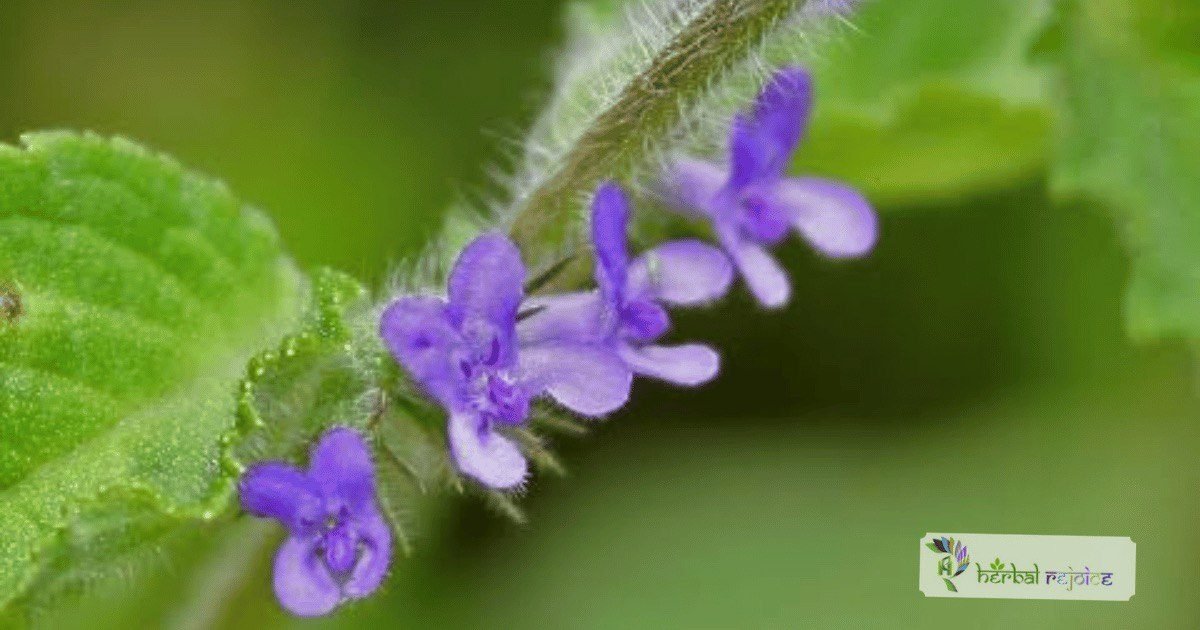Introduction
Welcome to Herbal Rejoice, your trusted source for healthy living and natural remedies. Today, we delve into Neem (Azadirachta indica), an extraordinary herb with a wealth of healing benefits, cherished for centuries in India for its remarkable properties. It has anti-inflammatory and anti-anxiety effects.
Traditional Healing Heritage

Discover the neem tree, a botanical pharmacy providing leaves, seed oil, and bark with a wide range of health benefits.
Ancient healers revered it for its disease-resistant properties, using it as a blood purifier and detoxifying agent to combat chronic fevers and infections.
Ayurvedic medicine highlights Neem’s effectiveness in treating skin infections, inflammatory skin conditions, joint pain, and muscle aches. Even in rural India, neem twigs are used as toothbrushes to strengthen gums and prevent gingivitis.
Unveiling the Botanical Wonders
Chemical analysis of Neem flowers, leaves, seeds, and bark have identified many unique bitter substances like nimbin and azadirachtin, possibly contributing to its disease resistance.
Extracts from Neem have demonstrated antifungal, antibacterial, and antimalarial activity, making it a popular component of nontoxic insecticides.
Its efficacy has led to international controversies as Western pesticide companies seek patents for its powerful chemical compounds.
The Science Behind Neem
Throughout history, Neem has been used to treat infections, diabetes, obesity, anxiety, and pain.
Its reputation as a protector against toxic injuries caused by drugs or viruses is well-founded.
Modern research validates many traditional attributes, demonstrating Neem’s ability to inhibit bacterial, fungal, and parasitic infections.
Additionally, Neem enhances various aspects of immune function, showing potential for cavity prevention, treating scabies, and curbing mosquito growth in tropical countries.
Its anti-inflammatory and pain-relieving properties further support its use in traditional medicine.
Neem’s Potential in Healthcare
Neem’s medicinal versatility extends to treating various conditions. Neem is used for gentle detoxification, aiding those who have overindulged or faced drug-related challenges.
Its toxin-reducing properties offer potential benefits for weight loss and Type II diabetes mellitus.
External application proves helpful in alleviating inflammatory skin conditions, including allergic dermatitis and acne.
However, it’s important to exercise caution when using Neem in cases of toxic accumulations in debilitated individuals, as it can deplete tissues.
How to Incorporate Neem into Your Life
Neem is readily available in various forms, making it accessible to everyone. The leaves can be found in Indian and Middle Eastern food stores, providing a pleasantly bitter flavour to soups, casseroles, and vegetable dishes while aiding in reducing toxic accumulations.
Neem powder and oil are readily available at health-food stores. To utilize Neem as a detoxifying agent, mix one-half teaspoon in juice or water thrice daily for a week. Apply a neem powder paste twice daily for topical use in skin infections.
Medicated neem oil serves well for dry, irritated skin, and its anti-insect properties make it ideal for limiting infestations in fruit or vegetable plants.
Neem leaves have been utilized for centuries to protect clothing and papers from mold and mildew, further reinforcing its significance in every home pharmacy, as recommended by Ayurveda.
Neem in Ayurveda: Understanding Its Nature
According to Ayurveda, Neem exhibits bitter, drying, and cold properties, making it invaluable for hot and damp conditions. Its usefulness extends to Kapha and Pitta conditions, although it may exacerbate Vata-related problems.
Neem’s detoxifying abilities find significance in addressing issues of retention and excess, such as diabetes and obesity.
Precautions and Considerations
While Neem offers an array of benefits, it is crucial to exercise caution. Due to its contraceptive and potential abortion-promoting properties, women of childbearing years who are pregnant or may plan to become pregnant should avoid taking Neem.
Individuals severely depleted from chronic illness or poor nutrition should also use Neem cautiously.
Conclusion
Incorporate the miraculous Neem into your life to experience its profound health benefits. From its traditional healing heritage to its scientifically validated properties, Neem is a versatile herbal solution that has withstood the test of time.
With proper caution and understanding, Neem can be a powerful ally in your journey to a healthier, happier life.
Remember, Herbal Rejoice is your companion on the path to holistic well-being. Embrace Neem, a valuable gift from nature, ready to be cherished!
Frequently Asked Questions (FAQ) about Neem
What is Neem, and where does it originate from?
Neem, also known as Azadirachta indica, is a tall evergreen tree native to India and China. It is cultivated and naturalized in various regions, including India, the Malay Peninsula, Indonesia, and Pakistan.
What are the traditional medicinal uses of Neem?
Neem has been used for centuries to treat various human and veterinary ailments, such as head lice, fever, rheumatism, asthma, leprosy, and more. It is also applied as an insecticide and used for promoting healing.
What are the unique components found in Neem?
Chemical analysis of Neem has identified various bitter substances, including nimbin and azadirachtin, which may contribute to its disease-resistant properties.
What are the documented health benefits of Neem?
Neem treats infections, diabetes, obesity, anxiety, and pain. It is reputed to protect the liver against toxic injuries caused by drugs or viruses.
How does Neem support immune function?
Studies suggest that extracts from Neem can inhibit bacterial, fungal, and parasitic infections while enhancing immune function.
Can Neem help with dental health?
Yes, a recent report from the UCLA School of Dentistry indicates that Neem can reduce the ability of streptococcal bacteria to colonize the surface of teeth, making it effective in oral health.
How is Neem used to treat skin conditions?
Neem’s anti-inflammatory and anti-anxiety effects and significant pain-relieving properties make it helpful in treating inflammatory skin lesions, acne, and even scabies.
What precautions should be taken when using Neem products?
Due to its contraceptive and abortifacient effects in animal studies, neem products should be avoided by pregnant women or those who may become pregnant. Individuals significantly weakened due to chronic illness or inadequate nutrition should also be cautious.
What is the dosage of Neem for detoxification purposes?
For detoxification, take one-half teaspoon of Neem in juice or water three times daily for one week.
How can Neem be used topically for skin infections?
To treat skin infections, apply a paste with neem powder twice daily on the affected area.
What is the application of Neem in tropical countries?
Neem’s antibiotic properties are applied in tropical regions for treating malaria and curtailing mosquito growth.
Can Neem be utilized to protect clothing and papers?
Neem leaves have been used centuries to protect clothing and papers from mold and mildew.
What are the Ayurvedic properties of Neem?
According to Ayurveda, Neem is considered bitter, drying, and cold, making it useful in hot and damp conditions. However, caution is advised for Vata’s problems.
What is the role of Neem in problems of retention and excess?
Neem’s detoxifying properties make it valuable in addressing problems related to retention and excess, such as diabetes and obesity.
Can Neem be used as a male contraceptive?
Yes, approximately 100 g of neem bark soaked in 1 L of water can be consumed daily for one month as a male contraceptive.
What adverse reactions are associated with Neem?
Nausea, vomiting, anorexia, hypersensitivity, and Reye’s syndrome (in infants) are potential adverse reactions to Neem.
Are there any known drug-herb interactions with Neem?
Currently, there is no information available on drug-herb interactions involving Neem.
What are the toxicity levels of Neem?
Studies have shown that neem-based pesticide products, particularly non-aqueous extracts, can be toxic, warranting caution in their usage.
Is Neem recommended for pregnant women or lactating mothers?
Due to its contraceptive and potential abortion-promoting effects, by women of childbearing years who are pregnant or planning to become pregnant should avoid Neem.





